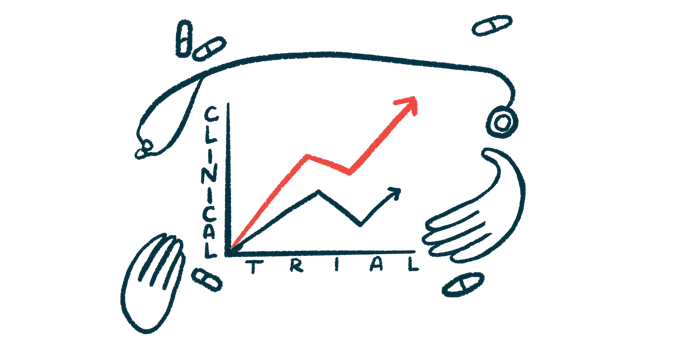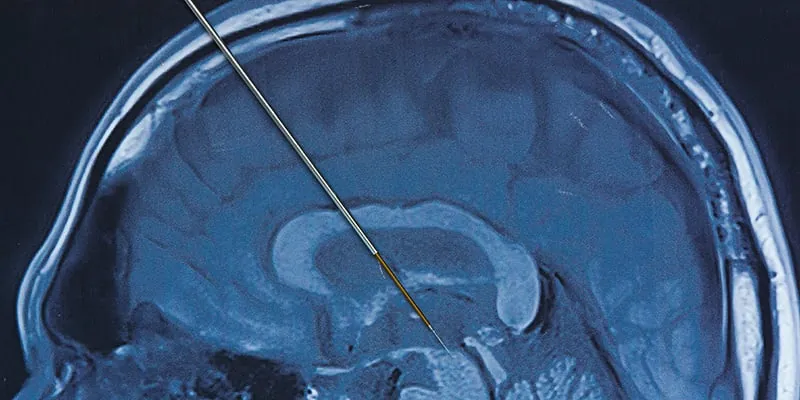
Promising New Study: Etavopivat Could Be a Game-Changer for Sickle Cell Disease Patients!
2024-12-17
Author: Arjun
A groundbreaking new study on Etavopivat, an investigational oral therapy developed by Novo Nordisk, reveals significant potential in managing sickle cell disease (SCD). Research indicates that this innovative treatment may not only reduce the frequency of vaso-occlusive crises (VOCs) but also improve hemoglobin levels in patients.
These promising findings were presented at the Annual Meeting and Exposition of the American Society of Hematology (ASH) held in San Diego, and shed light on the Phase 2 outcomes from the ongoing Phase 2/3 HIBISCUS trial (NCT04624659). The presentation, titled "Etavopivat reduces incidence of vaso-occlusive crises in patients with sickle cell disease: HIBISCUS trial phase 2 results through 52 weeks," highlighted how the data will inform the upcoming Phase 3 segment of the trial, which seeks to evaluate the treatment's efficacy in a larger cohort.
Martin Holst Lange, MD, PhD, the executive vice president and head of development at Novo Nordisk, expressed optimism regarding the findings, stating, "Although additional studies are needed, emerging results from HIBISCUS may mark a significant step forward in achieving this ambition and potentially providing people living with sickle cell disease with an option that can help manage symptoms and disease progression."
Sickle cell disease arises from mutations in the HBB gene, leading to the formation of an abnormal type of hemoglobin that distorts red blood cells into a sickle shape. This abnormal protein hampers the blood’s ability to carry oxygen, often resulting in painful crises when blood flow is blocked.
Etavopivat, previously known as FT-4202, is designed to be taken once daily. It works by activating the pyruvate kinase enzyme, which enhances the energy production within red blood cells while simultaneously reducing the levels of 2,3 diphosphoglycerate (2,3 DPG), a substance that diminishes hemoglobin's affinity for oxygen. Theoretically, this increase in affinity should decrease the likelihood of red blood cells sickling, thus reducing the occurrence of VOCs.
Study Results at a Glance
The HIBISCUS trial specifically targets adolescents and adults aged 12-65 living with SCD. In its Phase 2 segment, 60 participants were randomized to receive either 200 mg or 400 mg of Etavopivat, or a placebo, over a year.
Key outcomes included assessing hemoglobin levels after six months and tracking VOC rates over a 12-month period. Remarkably, at the six-month mark, 38% of participants in the 200 mg group and 25% in the 400 mg group experienced a minimum increase of 1 g/dL in hemoglobin levels, compared to just 10.5% in the placebo group.
Over the course of the year, the average frequency of VOCs dropped significantly. The 200 mg group had an annualized VOC rate of just 1.07, and the 400 mg group saw a rate of 1.06 – a dramatic decline from a mean of 3.3 crises experienced in the year prior to treatment. In contrast, the placebo group experienced a VOC rate of 1.97.
Even more impressive, in the per-protocol population — those adhering to the treatment schedule — VOC rates dramatically fell further to 0.66 for the 200 mg group and 0.70 for the 400 mg group.
While most reported adverse events were mild to moderate, two serious incidents linked to treatment were noted: one involving increased liver enzymes and another with low hemoglobin levels. Two patients from the 200 mg cohort had to discontinue use due to these side effects.
The upcoming Phase 3 portion of the HIBISCUS trial aims to enroll approximately 380 patients, who will be randomized to receive either the 400 mg dose of Etavopivat or a placebo, with the option for continuation in an open-label extension.
Dr. Julie Kanter, co-director of the Lifespan Comprehensive Sickle Cell Center and a professor at the University of Alabama at Birmingham, emphasized the importance of developing more treatment options for SCD, stating, "We need more treatment options for people with sickle cell disease to help address the unmet need in this community. Etavopivat is a promising investigational treatment… and I look forward to seeing how this may impact the treatment landscape."
With such exciting developments on the horizon, patients and advocates alike may have reason to feel hopeful about the future of sickle cell disease treatments! Keep an eye on further updates as the research progresses.






 Brasil (PT)
Brasil (PT)
 Canada (EN)
Canada (EN)
 Chile (ES)
Chile (ES)
 España (ES)
España (ES)
 France (FR)
France (FR)
 Hong Kong (EN)
Hong Kong (EN)
 Italia (IT)
Italia (IT)
 日本 (JA)
日本 (JA)
 Magyarország (HU)
Magyarország (HU)
 Norge (NO)
Norge (NO)
 Polska (PL)
Polska (PL)
 Schweiz (DE)
Schweiz (DE)
 Singapore (EN)
Singapore (EN)
 Sverige (SV)
Sverige (SV)
 Suomi (FI)
Suomi (FI)
 Türkiye (TR)
Türkiye (TR)